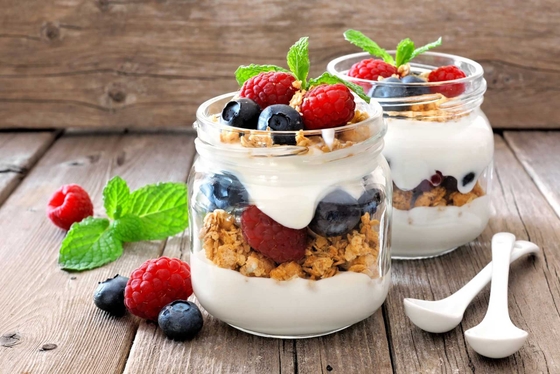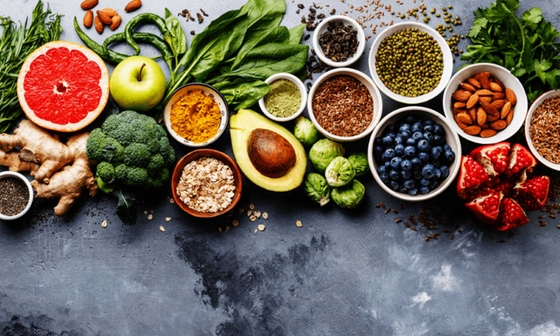
The best (and worst) drinks for heart health
Water is the most heart-healthy drink, but there are other drinks that you can enjoy in moderation.
Key takeaways
3 min read
Water is the drink of choice for heart health. If you’re thirsty, drink water.
When the weather is warm or we’re exercising, our bodies need more water than usual.
Unflavoured milk, tea and coffee can be enjoyed in moderation.
Try to limit sugary drinks such as soft drink, cordial, fruit drinks, sports drinks and energy drinks.
The less alcohol you drink the lower your risk of harm from alcohol. Healthy men and women should drink no more than 10 standard drinks per week and no more than four standard drinks on any one day.
For some people, not drinking alcohol at all is the safest option.
When it comes to heart-healthy drinks, there’s none better than water. Our bodies need it. In fact, we’re mostly made up of water, including our major organs, such as the heart. Most of the chemical reactions that happen in our cells need water, and it helps our blood carry nutrients around the body. That's why it's important to drink water every day. Plain tap water is the best choice. It's cheap, quenches your thirst and has no kilojoules. You can also enjoy sparkling water with fruit for some variety, or in place of less healthy drinks (like alcohol or soft drinks).
Heart-healthy drinks (other than water)
If you are looking for a heart-healthy drink other than water (either for flavour or for enjoyment), you can opt for the following drinks:
Sparkling water (try adding chopped fruit or herbs; for example, fresh mint).
Unflavoured milk.
Plant-based milks with added calcium, like soy, almond, oat, rice milk.
Tea.
Coffee.
Small glass (125ml) of 100% fruit or vegetable juice.
Unflavoured milk
Unflavoured dairy milk can be part of a heart-healthy eating pattern. Milk is a dairy food, and these foods don’t increase or decrease your risk of heart disease, but they can be an important source of calcium, protein and other minerals.
Unflavoured milk, yoghurt and cheese can be part of a heart-healthy eating pattern, but for people with high cholesterol, we recommend choosing reduced fat products.
Plant-based milks
Some people don't drink dairy milk because of allergies or intolerances. Some people choose not to for individual or health reasons.
If you choose not to eat dairy foods it’s important to eat other foods that have calcium, and this can include plant-based milks.
Plant-based milks come from various sources including legumes (or pulses), tree nuts, seeds and cereals. Examples of plant-based milks include:
soy milk
almond milk
rice milk
oat milk.
These milks vary in terms of how nutritious they are, which depends on:
the main ingredient used to make the milk (for example, oats)
added ingredients (for example, sugar)
added nutrients (also known as ‘fortification’, for example, added calcium).
Opting for plant-based milks instead of dairy milk isn’t always a healthier swap.
If you choose to drink plant-based milks, it’s important to check the nutrition information panel. Choose one fortified with calcium and with no (or less) added sugar.
Tea
Tea can be included in a heart-healthy eating pattern. Remember:
Be mindful of what you drink with your tea; keep added sugar to a minimum.
Caffeine is present in tea. Green tea is lower in caffeine than black tea, but both need to be considered if you’re sensitive to, or taking medication which interacts with, caffeine.
What about kombucha?
Kombucha is a type of fermented tea drink. It has recently increased in popularity as part of the health and wellness trend and is widely available.
Kombucha products vary depending on the:
microorganisms present
fermentation time
type and quantity of tea and sugar used.
The evidence of health benefits associated with kombucha is limited. While it can be a lower sugar and kilojoule alternative to sugary drinks, some commercial products contain alternative sweeteners to enhance the sweet taste. See information below on alternative sweeteners.
Coffee
Coffee can also be included in a heart-healthy eating pattern but consider what you have with your coffee. It’s best not to add sugar, cream, ice-cream or syrups.
Remember that large milky coffees or iced coffees can increase the kilojoule (energy) content of the drink and often contain more than one shot of coffee.
Like tea, caffeine is present in coffee. People react to caffeine in different ways. Caffeine sensitivity depends on how often a person consumes caffeine. There is also emerging evidence that our genes may play a role in our body’s response to caffeine, and even how much we can consume before feeling unwell e.g. anxious or causing heart palpitations.
Guidance for daily tea/coffee intake in adults:
up to four espresso shots (or four coffee pods) or
up to five cups of instant coffee or
up to seven cups of tea a day
Try to limit your total caffeine intake to no more than 400mg per day. A cup of instant coffee has about 80mg while a single shot of espresso has about 100mg. A cup of tea has about 50mg caffeine.
If you drink both tea and coffee, adjust your caffeine intake accordingly. Pregnant and lactating women should limit intakes to no more than half the recommendations for healthy adults. Every person responds to caffeine differently so always consult your doctor or dietitian for individualised advice.
Fruit or vegetable juice
While it’s better to eat fruit and vegetables whole, an occasional small glass (125ml or about ½ cup) of 100 per cent fruit or vegetable juice is reasonable.
Try adding sparkling or tap water to extend the fruit juice further.
Fruit drink is different to 100 per cent fruit juice and contains added sugars such as reconstituted fruit juice or purees, sugar and fruit juice concentrates. Fruit drink is not recommended as part of a heart-healthy eating pattern.
Unhealthy drinks
Sugary drinks
Sugary drinks include soft drinks, cordials, fruit drinks, sports drinks, energy drinks and iced teas. These drinks are also known as ‘sugar sweetened beverages’.
Sugary drinks are high in kilojoules (energy) and offer little or no nutritional value. Sugary drinks aren’t recommended as part of heart-healthy eating pattern.
What about alternative sweeteners?
Alternative sweeteners include things like stevia or aspartame. These are designed to make drinks taste sweet without the added kilojoules. There is very little evidence for their long-term health effects. It’s also not clear if alternative sweeteners improve people’s diets or have any health benefits. As more research is needed to understand their place in a heart-healthy eating pattern we currently do not recommend them.
Ways to cut down on sugary drinks:
Buy a reusable water bottle, so you can take your own tap water everywhere you go
Keep water in the fridge, so you can have cold water to drink whenever you're thirsty
Add chopped fresh fruit or vegetables to cold tap or sparkling water for a refreshing drink. Try adding berries, mint, lemon or cucumber.
Alcohol
The risk of developing some heart conditions increases the more alcohol you drink.
We don’t recommend drinking alcohol for heart health. Alcohol isn’t a part of a heart-healthy eating pattern.
If you don’t drink alcohol, don’t start.
If you do drink, aim to bring your intake in line with our recommendations:
Healthy men and women should drink no more than 10 standard drinks per week and no more than four standard drinks on any one day.
The less you choose to drink, the lower your risk of harm from alcohol.
Children and young people under 18 years of age should not drink alcohol.
To reduce the risk of harm to their unborn child, women who are pregnant or planning a pregnancy should not drink alcohol. For women who are breastfeeding, not drinking alcohol is safest for their baby.
For people with cardiovascular disease or risk factors, the evidence is not strong enough to recommend a safe amount of alcohol.
For some people, the safest option is to not drink alcohol at all. Speak to your doctor for advice.
You might also be interested in...

Dairy and heart health
Explore how milk, yoghurt, and cheese affect heart health. Learn about dairy's role in a heart-healthy diet and the latest evidence-based recommendations.

How to follow a heart healthy eating pattern
Follow these easy tips to boost your heart health and embrace a heart-healthy eating pattern.

9 food and heart health myths, busted
Let’s dive into nine common food and health myths and the facts behind them.
Last updated15 August 2025
Last reviewed14 November 2023